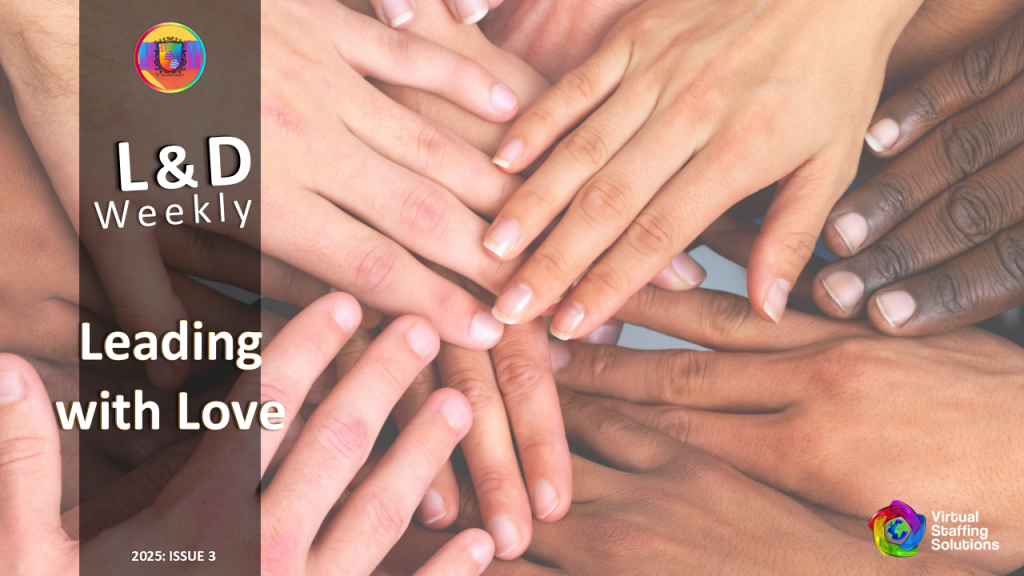An anecdote from a leader’s personal journey.

Many lives were rearranged when Covid19 took over the entire globe. Death toll and the numbers of those who were ill seemingly unabated. The breakout caused nightmares to everyone. Feelings of hopelessness and depression dragged down everyone’s sanity

While lockdown was always part of the daily headline which forbids everyone from gathering, a beacon of hope lit my life from the shadows. I came across to a satsang (spiritual gathering) online via YouTube initiated by ISCKON (International Society for Krishna Consciousness) somewhere around July 2020. A session was held with renowned spiritual leaders and practitioners of bhakti yoga (spiritual path). One speaker captured my heart and changed my whole being and perspective about life. I learned that purpose is not only a journey but an intention to make a difference. H.H. Radhanath Swami shared an incredible story of the legacy of a woman who made a difference in the lives of poverty-stricken village of Maharashtra. A story of unending suffering triumphed by the power of compassion – the legacy of Sindhutai Sapkal.

Radhanath Swami narrated his inspiring conversation with Sindhutai, I thought of sharing the same thing here. And I quote –
“This lady was born in a poverty-stricken village in Maharashtra, India. She never really had any education. When she was a young girl and wanted to go to school just like any other young girls in her age, her family made her tend a herd of buffaloes.
When she turned 9 years old, she was forced to marry a man who was about 30. By the time she reached 19, she had three sons, and was pregnant.
A syndicate was exploiting the village people especially women, to do hard labor paying them practically nothing and everyone in the village shakes in fear.
Sindhutai reported the person to the local collector overseeing the police, to stop him from what he’s doing, which made him enrage. To avenge from Sindhutai’s act He told his husband a lie. He said, “You’re a fool! Your wife is having affairs with many men. The child in her womb is mine and not yours! I have been having sex with her. If you don’t kill her and the child, I will kill you!”
The husband kicked her 19-year-old wife in the stomach repeatedly to kill her and the child inside her womb. She lay on the ground dead like. He dragged her unconscious wife to a cowshed where herd of cows were kept. He made this to cover up the crime and the people will feel that the cows just trampled her causing her untimely death.
She lay there dead like and the moment she woke up, she said, she noticed one cow standing right above her, protecting her. There were buffaloes, oxen and cows walking around which could have trampled her to death, but this one cow thwarting them away from her. And even when her in-laws came to check and make sure she’s dead, the cow chased them away with her horns and stood over her.
She gained her consciousness back and gave birth to a baby girl under this same cow. She took a rock to cut her umbilical cord. It took her about 20 slices to get free from it. And for so many hours the cow protected her, when she gained enough strength, she hugged the cow and promised:
“As you have protected me when I was in great need, I will protect others who are in need too.”

It is a long story, and no one would have her back. She was disowned by her family, because it is their custom that once a woman is given to marriage they can never come back home.
To get away from any trouble, she find home in the crematorium with her little baby. She would collect wheat that people would put around the dead bodies, mix it with water and cook it on the funeral pyres.
It was indeed a depressing life for her. She decided to end her life by committing suicide. She went to a railway track with her baby wrapped around in her arms and laid there waiting for the train to crush them.
While she was lying there, she heard someone crying in anguish. She got up with her baby and found an old man crying out. He was crippled and very invalid. He was dying in thirst and hunger. Moved by the old man’s situation, she begged and got him food and water. She considered the old man as God’s voice, whom she called Krishna. It made her realize a higher purpose in life than to end it by committing suicide. She exclaimed: I have something to do, something I can contribute to this world!

But then one day she was sitting in the field pondering what am I going to do? I have nothing, I have no one. How can I be of help to anyone?

She was under a tree and noticed a tree branch a woodsman had violently cut with an axe. The branch was hanging by a single string and is about to fall off, despite of this the branch was still giving her and the baby shade. She pondered and found the answer. No matter how much I’ve been beaten down, still I could do something to help others.
She started looking for and finding homeless, abandoned, orphaned children, and took care of them as her own. She became their mother. Somehow, she learned how to sing nicely. She begged for her singing, and provided for their needs and she became their HOME.
And after some time, people noticed what difference she was making to many people and they built an orphanage for her. Over the years she had about 1500 children, over a thousand grandchildren. All of her children have great education, many became doctors and lawyers and farmers, something she never had imagined.
She has won so many awards both locally and internationally for her accomplishments. She did the most meaningful and fulfilling thing in life. Years and years later, after she received awards from the President of India, from many states leaders and internationally, there’s a very old man came to her orphanage’s doorstep. The old man looks starved and sick. He was homeless. He was asking for a shelter.
After few minutes she recognized that this was her ex-husband. The man who tried to murder her and ruined her life. She said to him, “when you left me dying, I was homeless in rags. Now you’re homeless in rags, and I have a wonderful place with so many people.“ She forgave him, and she said “I will give you shelter, but I am no longer your wife, I will be your mother”. When people would visit her orphanage, she would introduce him. ‘This is my eldest son, and some time he’s very naughty.’
Her life story moved me. At one place, I have shared her story and somehow it was on YouTube and someone from her orphanage showed it to her. So, she wanted to meet me. In Pune I met her and she’s with couple of other people, and we’ve talked bout an hour together. It was a wonderful conversation.
And afterward I’ve noticed one lady sitting next to her, beaming with smiles the entire time, but didn’t say much of anything. And when I was just about to leave Sindhutai, she said, “I want to introduce you to this girl, she’s the baby born under the cow. She’s now a medical doctor, and is taking charge of one of our orphanages.“

She said to me, “I consider all the tragedies in my life to have been gifts to empower me, to make a difference to others.” She considered it all the grace of God. She said, “my life has been a road with so many thorns, but I made friends with those thorns and my life became beautiful. And I could give beauty to so many other people’s lives. “
The Journey: From Rejection to Compassion
True leadership and influence are birthed from unselfish service rather than material wealth. Radhanath Swami made this as his clarion call in all of his teachings. He frequently cites examples of people like Sindhutai who, in spite of her lack of material wealth, was incredibly loving, devoted, and determined— which are qualities that best describes a genuine leader.
Radhanath Swami argues that influence is not produced by wealth alone. It is the purity of one’s intention and actions which leaves a lasting impact. Sindhutai had no material wealth, yet she changed countless lives. Her ability to turn suffering into service is a living testament of fortitude and spiritual strength.
It began with a bold and self-less decision to make a dream turn into a reality. Compassion’s power profoundly changed the lives of many. Peace has not made a home among us in a world where we are all fighting battles within. The narrative of Sinduthai’s life is a living testament that life is an ocean of possibilities. It started with an intention!
Compassion is indeed powerful enough to transform lives of others!
WE lead with Compassion: Transforming Challenges into Opportunities
Decision making is only one aspect of leadership; another is understanding others, particularly in difficult circumstances. Every team has its own unique difficulties, it may be discord due to misunderstandings, opposition, or people facing obstacles both inside and outside the workplace. The most effective leaders do more than mitigating issues; they lead with empathy, compelled with the transformative power of compassion to turn setbacks into developmental success.
1. Listen Before responding
Factors such as stress, dissatisfaction or unmet needs may distort workplace relationship and may cause emotional outbursts. Instead of responding hastily, a leader is expected to listen first in order to identify the underlying problem. Active listening reduces conflict and fosters trust. Listen first then to be understood.
2. Remain Composed and at ease
Leader’s actions and responses directs the tone of the team. By intentionally staying composed and sympathetic during difficult situation enables logical thinking instead of giving way to unnecessary emotional outbursts. Leadership character is emulated by others; stability is fostered by your patience.
3. Find Solutions, Not Faults
Compassion-driven leaders guide their members toward resolution rather than focusing on what went wrong. Leaders should not get into the trap of playing the blame game. They sit down with team members and inculcate how to move forward and promote learning from mistakes.
4. You draw the line, yet remain kind
Tolerating obnoxious attitude DOES NOT mean compassion. It speaks about being fair in your leadership—directly addressing problems, setting clear guidelines, and holding individuals accountable while maintaining respect and dignity – tough love!
5. Inspire a Culture of Empathy
Compassion can spread like virus inside the workplace when leaders set an example. Hearing about how empathy became a pandemic is incredible, isn’t it? Stronger teams, greater morale, and a happier workplace are the results of a culture which values mutual respect, understanding, and patience.

Transformative power of Compassionate Leadership
Being compassionate to difficult people and circumstances is not a sign of weakness—it’s indeed a strength! This cause paradigm shift creating loyalty, trust, and resilience within a team. In the toughest times, a compassion-driven leader doesn’t just mitigate—they inspire, uplift, and transform challenges into developmental opportunities for everyone involved.
As leaders, we have the challenge of influencing others with compassion. The ability to turn challenges into a beautiful tapestry of a life that has changed. Now is the ideal moment to take a risk and open your heart to others in your sphere of influence!
Ready yourself, and let’s turn our workplace into a HOME where caring leadership embraces everyone regardless of who they are and what they are.
Inspired from the book: The Journey Home by Radhanath Swami
